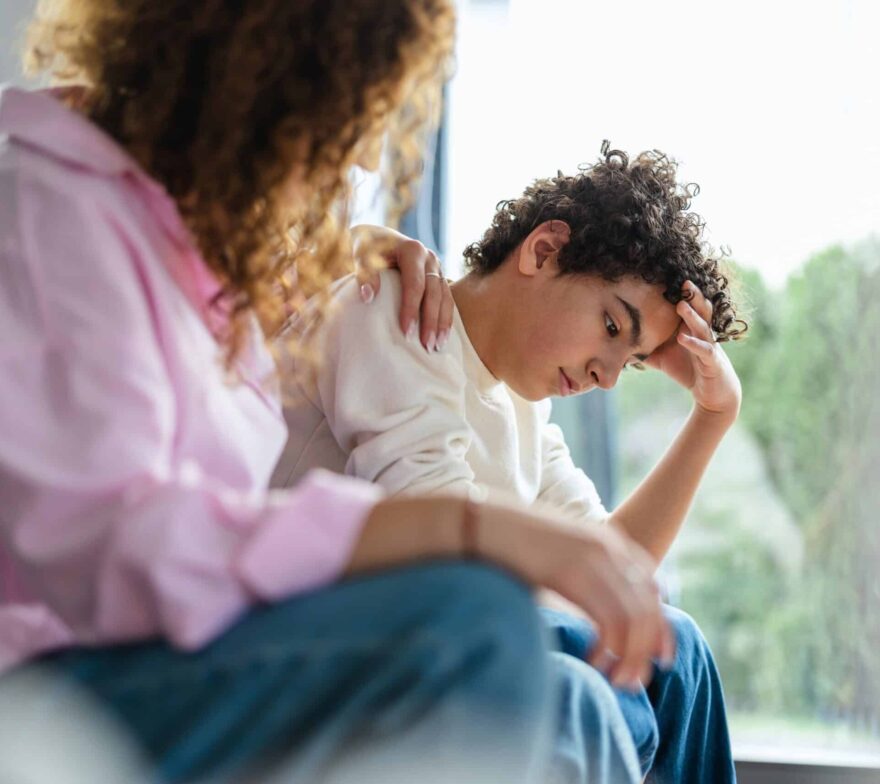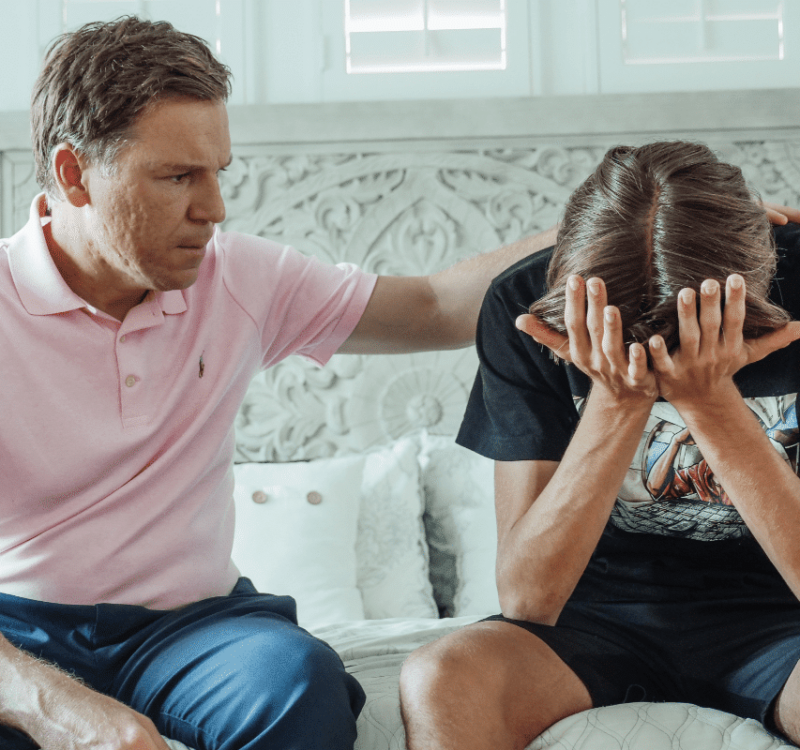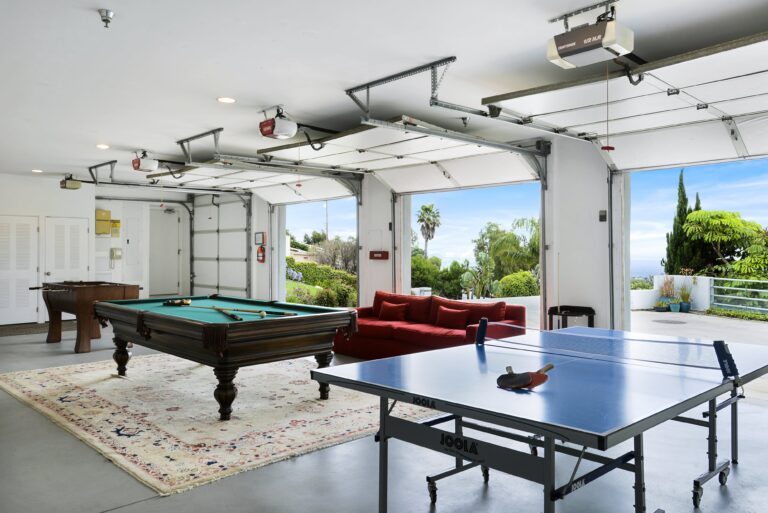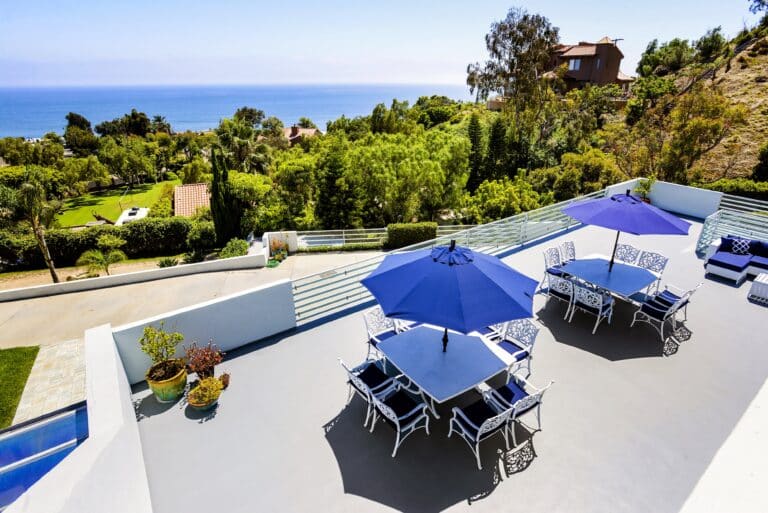Impulse Control Disorder Treatment for Teens
Is your teen struggling with impulsive behavior, making rash decisions, or acting without thinking about the consequences? At Beachside Teen, we provide specialized Impulse Control Disorder treatment to help teens develop self-regulation, emotional awareness, and healthier coping strategies. Our expert team offers compassionate, evidence-based care in a supportive environment—contact us today to learn how we can help your teen build a brighter, more balanced future.

Impulse control disorders can present significant challenges in teens as they struggle to regulate their actions and make rational choices. This can disrupt their ability to establish and maintain relationships, succeed academically, and function properly as they continue trying to understand and navigate the world around them. For this reason, Beachside Teen provides comprehensive impulse control disorder treatment that focuses on helping adolescents learn sustainable ways to cope with their urges and better handle their emotional responses. Located near scenic Malibu, we work with teens and their family to encourage long-term healing and personal development.
What is Impulse Control Disorder?
Defined by the inability to withstand certain impulses or urges that may be harmful to a person themself or another, impulse control disorder (ICD) is a serious behavioral condition. Teens with this disorder act abruptly on impulses, even when they do not fully comprehend the negative repercussions. These urges may manifest through stealing, participating in risky or dangerous activities, overspending, and self-harm.
For the most successful outcomes, early detection and intervention are key. Impulse control disorder treatment for teens usually consists of a combination of behavioral therapies, medication, clinically-proven interventions, and holistic strategies. The overall goal is to mitigate the negative consequences this condition can have on a teen socially, academically, and emotionally.
Types of Impulse Control Disorders in Teens
There are five conditions that have officially been identified as impulse control disorders. Each type of impulse control disorder is associated with its own set of symptoms and requires specialized treatment. The specifics of these conditions are highlighted below.
Kleptomania
This disorder is characterized by the overpowering desire to steal items, even if they are of little value. It is not uncommon for kleptomania to affect teenagers and is seen more in females. The stolen items are almost always not needed. After stealing, individuals typically feel guilt, yet go on to continue the pattern.
Intermittent Explosive Disorder
Marked by intense outbursts, anger, frustration, and aggression that often seem disproportionate to the current scenario, intermittent explosive disorder (IED) can result in physical and verbal harm. In most cases, these episodes occur suddenly and cause significant alarm. Those with this condition often feel remorse or even humiliated after their overpowering reaction. However, these outbursts typically persist if not treated.
Pyromania
Pyromania is marked by an irresistible urge to start fires. This act brings contentment to teens with this condition, though there is no practical need for the fire. Overall, this disorder can be particularly damaging to the individual, those around them, and the environment.
Conduct Disorder
This condition reveals itself through ongoing aggression and disruptive actions that infringe on the rights of others and the rules of society in general. Examples include bullying, destruction of property, lying, or stealing. Teens with conduct disorder seldom show regret and are at risk for long-term issues if they do not receive adequate treatment in a timely manner.
Oppositional Defiance Disorder
Defined by a persistent pattern of hostility, disobedience, and defiance towards authority figures, ODD can have negative repercussions on a teen’s relationship with their parents, teachers, and other adults they are expected to respect. This resistance typically surfaces through arguing, purposely irritating others, and disregarding rules. As a result, they encounter severe challenges at school, home, and in social settings.
Causes of Impulse Control Disorders in Teens
Impulse control disorder in teens cannot be linked to one specific cause. However, certain risk factors have been associated with the development of this disorder. These include psychological, genetic, and environmental influences.
Psychological Factors
Risk factors such as poor self-esteem or trouble regulating emotions can contribute to impulse control disorder in teens. This is because it makes it harder for them to control their thoughts and behaviors. Furthermore, unhealthy thinking habits and undeveloped coping skills can also result in impulsivity as it allows them to establish instant fulfillment and relief.
Genetic Predispositions
Individuals whose family members have struggled with mental health disorders may be at an elevated risk for the development of ICD. Also, genetic factors, including mutations that impact serotonin and dopamine production, can play a major part in this condition. This is because these influence mood and cognition, therefore affecting the ability to control impulses effectively.
Environmental & Social Influences
Growing up in an abusive or neglectful household can put individuals at a higher risk for impulse control disorder. Additionally, when adolescents have friends who participate in illicit activities or who live in a crime-ridden community, they are also more susceptible to struggling with impulse control. It is important to note that though some individuals who have been diagnosed with this disorder have a history of trauma, it is not the case for all.


Our Treatment Programs for Teen Impulse Control Disorder
Our impulse control disorder treatment for teens encompasses a full suite of effective programs. We prioritize the specific needs of each of our clients throughout every stage of their continuum of care. This ensures that their recovery journey is seamless as they continuously transition towards overall improved behaviors and thought processes. Outlined below are the types of programs offered at Beachside Teen.
Residential Treatment
Also known as inpatient care, residential treatment allows clients to heal in an immersive setting. Teens live on-site for the duration of this program where they are spared from all external stresses and triggers. This allows them to fully focus on addressing their unique needs, so that they can make lasting improvements.
Partial Hospitalization Program
Those in our partial hospitalization program typically attend treatment sessions five days a week for the majority of the day. This level of care maintains an intensive level of structure while incorporating a limited amount of freedom into treatment. Participants live at home while in this type of programming.
Intensive Outpatient Program
Our intensive outpatient program allows more flexibility than higher levels of care while still providing more support than traditional outpatient programming. As with in a PHP, participants reside at home while enrolled in our IOP. They usually attend treatment three to five days a week with each session lasting a few hours.
Therapeutic Education Program
Our therapeutic education program is highly beneficial to those struggling with behavioral challenges, such as impulse control disorder. It ensures that the academic needs of teenagers do not get overlooked while they undergo treatment. Furthermore, the setting we provide is specialized to meet the unique needs and strengths of those who learn in unconventional ways—fostering successful academic progress in our clients.
Aftercare
At Beachside Teen, our goal is for your teen to find lasting recovery. Therefore, our support does not stop after they have finished their formal treatment plan. Our aftercare program may consist of recommendations such as ongoing therapy and counseling, outpatient resources, or a therapeutic boarding school.
How Is Impulse Control Disorder in Teens Treated?
Beachside Teen addresses impulse control disorder through a combination of evidence-based therapies and alternative treatment modalities. This integrated approach helps teens to strengthen their coping mechanisms, improve their responses to stress, and process their compulsions. Ultimately, our goal is for them to better connect with their emotions, so that they can more effectively manage their behaviors. Treatment services offered at our facility in Malibu include:
- Behavioral Therapy: Behavioral therapies such as dialectical behavioral therapy (DBT) and cognitive behavioral therapy (CBT) focus on replacing negative thought patterns and behaviors with healthier ones to help teens successfully resist urges and impulses.
- Psychodynamic Therapy: Psychodynamic therapy helps teens process the repressed thoughts and experiences that may correlate with their inability to refrain from impulsive actions.
- Family Therapy: Integrating loved ones into treatment facilitates healthier relationships, better communication, and enhanced support strategies.
- Interpersonal Therapy: Interpersonal therapy provides teens with insight on how to appropriately interact with others and establish positive relationships and friendships.
- Equine Therapy: Equine therapy is highly beneficial to those with ICD as interacting with horses helps foster impulse control, empathy, and emotional intelligence.
- Expressive Therapy: Designed to help teens articulate their feelings and thoughts in unconventional ways, expressive therapy integrates creative pathways such as art, music, and writing into treatment.
- Outdoor Therapy: Nature is the ideal setting for those with impulse control to practice personal reflection, stress relief, and emotional connection.
Why Beachside Teen?
We view the primary benefit of choosing our facility for your teen’s treatment as setting them up with the best opportunity for a happy and productive future. The space we provide is specially crafted to meet the needs of those with behavioral disorders, such as impulse control disorder. Components of our center that we are especially proud of include:
- Caring Staff: We integrate expertise with compassion to support every aspect of your teen’s health. Throughout each step of treatment, our team is there to provide guidance, empathy, and knowledge.
- Personalized Care Plans: Each teen who comes to us undergoes a thorough evaluation. This includes interviews as well as input from loved ones. We then take this information to create a custom treatment plan intended to fulfill the distinct needs of each of our clients.
- Secure Environment: Our comfortable treatment facility combines structure and tranquility to provide a nurturing, transformative setting. This includes outdoor areas, spacious accommodations, and teen-centered activities. Tour our facility today.
- Sustainable Change: Our programs are meant to foster growth on a long-term scale. Our family-focused approach allows teens and their loved ones to work together in creating a constructive home environment that helps teens maintain progress after treatment.


Our Philosophy
At Beachside Teen, we see the value in family involvement. Our philosophy centers around the recognition that the best way to foster positive change is to consider family interactions and household dynamics as a part of the treatment process. This strategy allows teens and their parents to work collaboratively to listen and communicate in ways that benefit both parties. As a result, teens are more equipped to manage urges, cope with triggers, handle difficult emotions, maintain academic progress, and, ultimately, feel fulfilled in their day-to-day lives.
Find Impulse Control Disorder Treatment for Teens in Malibu, CA
Living with an impulse control disorder can take a notable toll on your teen. For the best treatment outcomes, early diagnosis and rehabilitation are critical. Our dedicated team of specialists is ready to support you and your family as you help your teenager make the transition towards recovery. To learn more about how Beachside Teen can improve your child’s quality of life, give us a call or visit our admissions page.
Call us now at 888-254-0916 or verify your insurance.



